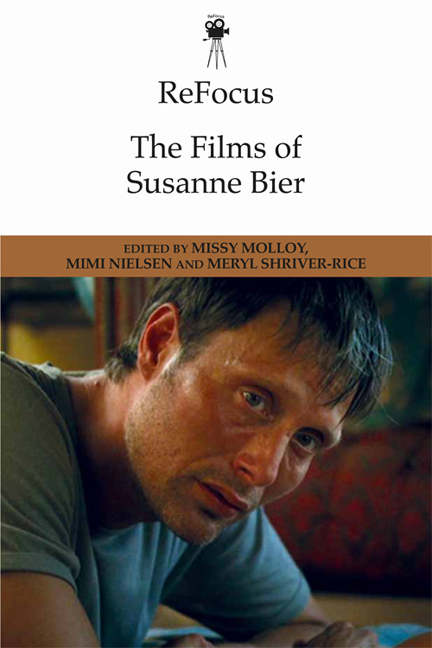Book contents
- Frontmatter
- Contents
- List of Figures
- Notes on Contributors
- Foreword
- Introduction: Susanne Bier's Boundary-Crossing Screen Authorship
- Part 1 Generic and Industrial Fluidity
- Part 2 Negotiating Identity
- Part 3 Authorship and Aesthetics
- Part 4 Transnational Reach
- Postscript: A Conversation with Susanne Bier
- Filmography of Susanne Bier
- Acknowledgments
- Index
12 - From Local to Global: The Bier/Jensen Screenwriting Collaboration
Published online by Cambridge University Press: 01 May 2021
- Frontmatter
- Contents
- List of Figures
- Notes on Contributors
- Foreword
- Introduction: Susanne Bier's Boundary-Crossing Screen Authorship
- Part 1 Generic and Industrial Fluidity
- Part 2 Negotiating Identity
- Part 3 Authorship and Aesthetics
- Part 4 Transnational Reach
- Postscript: A Conversation with Susanne Bier
- Filmography of Susanne Bier
- Acknowledgments
- Index
Summary
Denmark, as a small filmmaking nation, has gone through multiple transformations since garnering consecutive Oscar wins in the 1980s. Such creative mutability is largely a result of constraint-based artistic approaches that grew out of the Dogme 95 manifesto and the pivotal mid-1990s industrial overhaul under which the New Danish Cinema movement emerged. As Mette Hjort suggests, regeneration of this sort is dependent upon cinematic representations that transcend national borders and consciousness, narratives that intertwine through commonality of story or shared language, one not based on dialect but discourse (Hjort 2005: 39). While Hjort's comment affirms the value of universal creative exchange, it also reflects Denmark's industrial sensibility.
While Danish directors, such as Lars von Trier, Thomas Vinterberg, Lone Scherfig, and, more recently, Nicolaj Arcel and Tobias Lindholm, have swept film festival awards and attained international visibility, collaboration rather than singularity defines contemporary Danish cinema. One of the major differences between Danish cinema practices and other film industries is the focus on writer/director partnerships and story collaboration. This approach has provided Danish film practitioners with a distinct and visionary approach to creative development that is unlike any other national film industry. Susanne Bier's work with the prolific screenwriter Anders Thomas Jensen best reflects the transnational capacities of this cultural model. Over the past fifteen years, the duo have co-written six feature films and provide a clear example of the collaborative auteur approach to development that is increasingly seen as a unique feature of Danish cinema (Redvall 2010: 76). A successful writer/director in his own right, Jensen's body of work expresses a vastly different sensibility than Bier’s. Indeed, any synergy between the two may have originally seemed unlikely. However, their filmography is the result of one of the most critically acclaimed and commercially successful partnerships to straddle both domestic and international markets.
ANDERS THOMAS JENSEN'S DARK COMEDIES
In contrast to Bier, Jensen's writer/director sensibility is far more focused on the local than the global. His films are in Danish with Danish actors and characters and rely on shared notions of Danish culture. As a director, Jensen is somewhat unusual as he bypassed the National Film School of Denmark, yet still managed to forge a prolific output as an independent screenwriter and director.
- Type
- Chapter
- Information
- ReFocus: The Films of Susanne Bier , pp. 229 - 242Publisher: Edinburgh University PressPrint publication year: 2018



